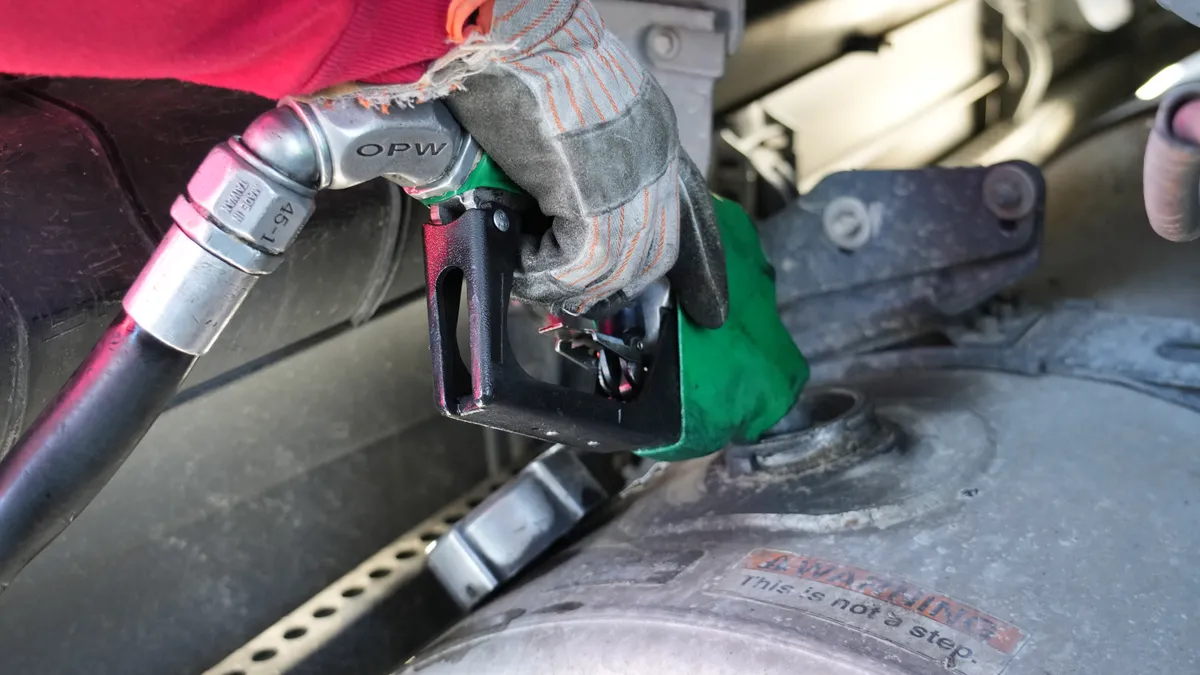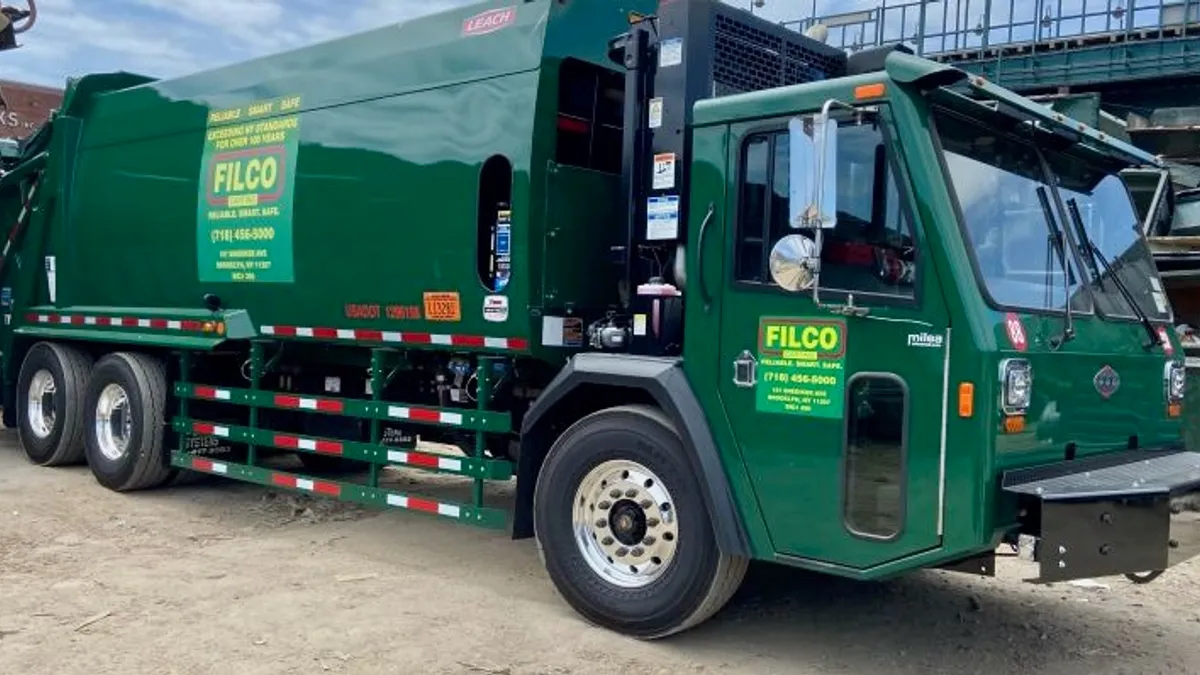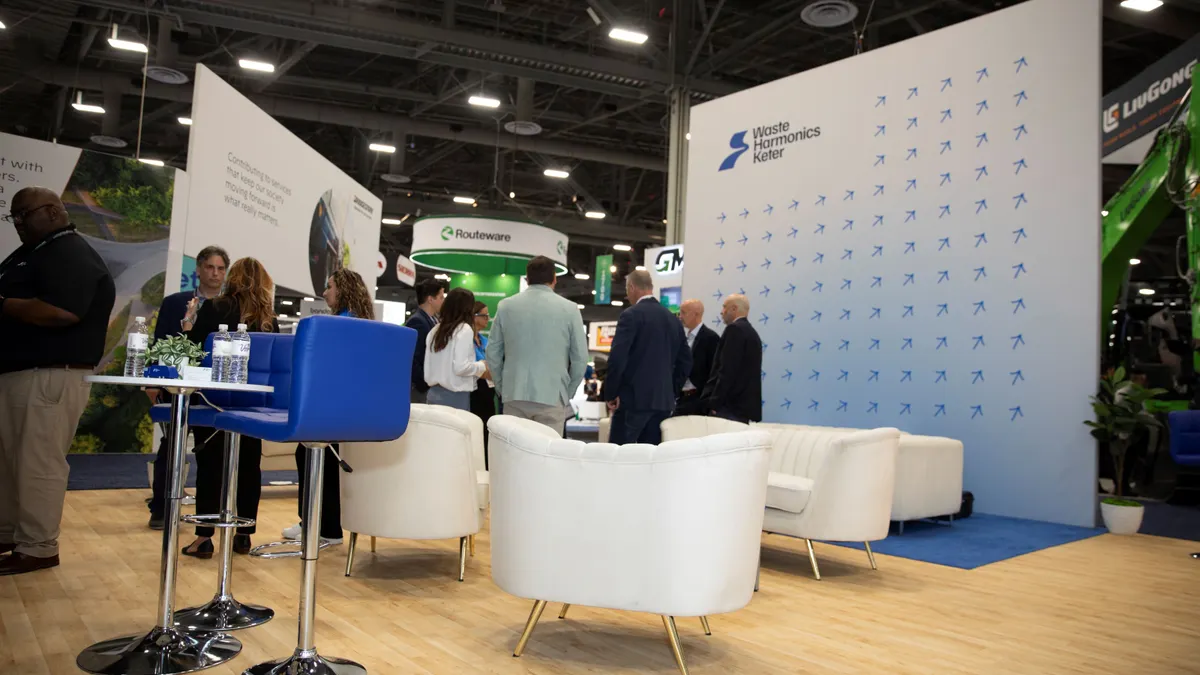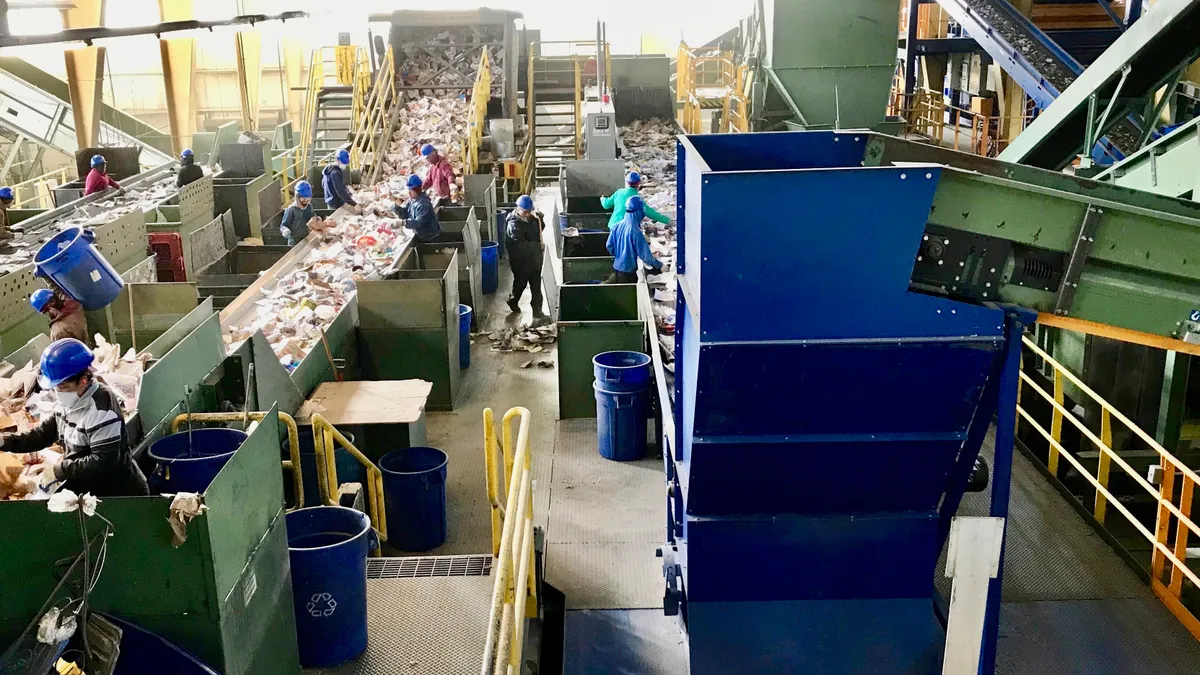Fuel prices have fluctuated in recent weeks and danced around record highs amid geopolitical turmoil stemming from war in Ukraine, and other factors. For big fleets in the U.S., that cost difference adds up.
In Des Moines, Iowa, where the city runs all of its own waste collection with an entirely diesel-powered fleet, waste operations are "by far the largest consumer of liquid fuel in the city's fleet," said Public Works Director Jonathan Gano, pegging garbage trucks as using almost half the fuel of all city vehicles.
For private-sector haulers and city agencies alike, that can mean passing fuel surcharges along to customers. That sort of contract provision "builds in some flexibility" for the fluctuations in prices, said Brandon Wright, the National Waste & Recycling Association’s vice president of communications and media relations.
WM is just one of them. “Like many other companies, particularly those engaged in hauling and transportation services, WM implemented a fuel surcharge as part of its customer billing a number of years ago," explained Gary Chittim, communications manager for the company in the Pacific Northwest/British Columbia area. That surcharge is directly tied to the nationally reported average price of diesel fuel, so as the price ticks up or down over time customer billings will reflect increases or decreases, Chittim wrote in an email.
Hamzah Mazari, a managing director at investment firm Jefferies, estimated in an email that about 95% of fuel costs are hedged in the waste space, with a roughly one quarter lag given the fuel surcharge mechanism. The remaining 5% is internal fuel consumption that cannot be passed through to the customer as a surcharge.
"So higher fuel costs over the long term are not a huge impact to the space impacting ~5% of the cost structure and given the lag in the very short term can impact margins but that usually normalizes once the fuel surcharge captures most of the uplift," Mazari wrote.
Members of the U.S. Conference of Mayors' Municipal Waste Management Association shared their own perspectives. Albuquerque, New Mexico, for example, is among the city-run operations that charges residential and commercial customers alike a fuel surcharge when the price of fuel crosses a certain threshold. The vast majority of Albuquerque's trucks run on diesel. According to Jill Holbert, associate director in the city's solid waste management department, the surcharge doesn't 100% cover the cost difference, but it lessens the impact. The revenue is delayed by about two months
Meanwhile, in Los Angeles, which operates liquefied natural gas (LNG) and compressed natural gas (CNG) collection vehicles for trash, recycling and organics, "pricing has been relatively stable as compared to diesel and unleaded pricing," said Alex Helou, assistant director in the executive office at LA Sanitation and Environment, in an email.
Santa Fe, New Mexico's Environmental Services Division has a mostly CNG fleet. It has a slow fill station on site and contractual price with distributor Clean Energy, according to an email from Director Shirlene Sitton. "I would say many cities with large fleets have their own internal fueling stations with contracts in place. We do also for our diesel vehicles. We don’t see the daily fluctuations consumers see at the pump," Sitton wrote.
Sitton noted that private-sector contracts often feature an index or formula that allows more immediate, potentially quarterly, adjustments to charges based on fluctuating fuel prices. But in the case of Santa Fe, the budget for the next fiscal year was written and in process before current events affected fuel prices.
"We just passed our first rate increase in six years, and it was based on a cost of service study looking at real expenses in 2020 and projected price increases that were calculated a year ago. If our contractual agreements also must change, then perhaps our rates will not be high enough and it will hurt our shrinking reserves that have been hit hard with recycling processing fees," Sitton said. And the city operates on three- to five-year cycles, so it "can’t react quickly when these markets suddenly change."
In Des Moines, for now, costs are covered without an immediate rate increase, said Gano, who also chairs the American Public Works Association’s Leadership and Management Committee.
"Ultimately, everything is paid for by the customer. We're able to to slow the passing of that cost onto the customer presently, but if sustained for a long time we'll need to look at rate hikes in the future just to cover fuel prices. We're not quite there yet, but the cost of everything going up means the cost of garbage collection will go up too," he said. Gano also noted it's currently municipal budget season so the city's finance department is doing fuel price forecasting and will factor in new cost increases.
As for gaining other potential route efficiencies to trim fuel use and costs, there's not necessarily much room for operators to react to the current environment, as many have already shored up routes by previously implementing specialized software.
NWRA's Wright did note that the partial shift in recent years to CNG and even electric-powered trucks can mitigate some of the recent fuel price impacts. The former is more widespread; over half of the collection fleet at WM runs on some form of alternative fuel — predominantly natural gas. Republic Services is among those that have made investments in more novel electric vehicle designs. At the same time, the industry is working to ramp up its own energy production, and anaerobic digester company Bioenergy Devco put out a statement this month addressing the role renewable natural gas can play as the U.S. seeks to reduce dependency on other countries' oil.
For operators not far along on that transition, recent trends could build momentum.
According to Gano, while the price of fuel has been slowly rising for about a year, "this kind of thing just really gets you motivated to move off of liquid fuel." Gano said that while Des Moines isn't planning any imminent investments, the current environment is "incentivizing us to accelerate our investigation of alternative fuels," with particular interest in electric offerings.
The same goes for Albuquerque's interest in CNG. "We are very open to alternative fuel vehicles, and I wouldn't necessarily say it's specifically because of the fuel costs. It's kind of a direction that the city just wants to go," Holbert said. Higher expense has been a barrier, on top of long delivery schedules.
Relatedly, another potential disruption from turmoil in Europe that leaders are monitoring is impacts to supply chains for trucks and parts, as Gano also noted.
"The situation in Europe is complicating an already strained supply chain that's still not recovered from the pandemic," Gano said. "Availability of parts, availability of vehicles, lead times for production — it's a whole different ballgame right now, and it has been for a very long time. This is just kind of the icing on the cake here."
Costs and supply chain concerns go beyond specific fuel or vehicle types. Midwest-based Rumpke Waste & Recycling — whose fleet currently stands at about a quarter CNG, with a goal of increasing that percentage by 4.5% by the end of next year "if supplies are available" — has seen an approximately 15% to 18% increase in the costs of trucks and spare parts, according to Director of Corporate Communications Amanda Pratt, who added that delivery surcharges often add between 4% and 9% to the price. Tire, oil and lubricant expenses all continue to trend upward too, Pratt noted.
This story has been updated with information from Rumpke.


















